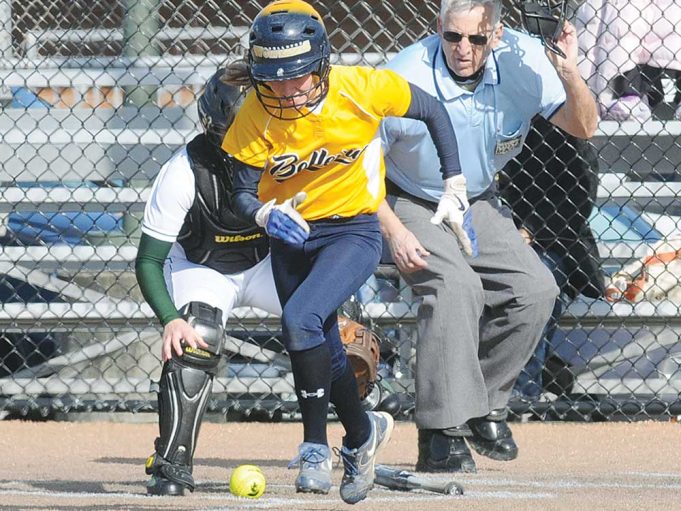Every official has had a bad game he or she would rather forget. Whether it was a kicked call, problems with a partner or crewmate or argumentative players and coaches, it’s not always easy to put those games in the rear-view mirror.
In the case of a botched call, recognizing it is the first step on the road to mental recovery. From that point on, it’s about how you choose to react.
The longer we officiate, the higher our personal expectations become, making it difficult to accept criticism from anyone — from fans and participants to assigners and coordinators. As the level of scrutiny continues to increase, officials face the possibility of having one of “those games.”
When high-level officials hit the banquet circuit, they often cite their blunders in humorous stories. Not as a bragging point or making light of those situations, but illustrating no one is above mistakes. Or they recall the confrontation with a coach or player that wound up on a sports highlight show. Their story usually concludes with how they used that circumstance to improve and move on. It’s possible the tale will include a mention of steps taken and mentors’ advice.
Officials can’t and should not simply erase their memory, forgetting the bad game. Nor should it be carried around like a boulder. Instead, there are ways to turn chicken feathers into chicken salad.
Why did it happen?
To begin, make an honest self assessment to determine if outside factors were at work. Did you bring something to the game that should have been left at home or work? Were you mentally ready? Did you misapply a rule or use incorrect mechanics?
Those errors are fairly easy to correct, with study or with an attitude adjustment.
The film doesn’t lie
We’ve heard it hundreds of times: Viewing our games from various angles exposes what occurred in our areas of coverage.
If the film will be evaluated by a supervisor, observer, trainer or coordinator, take the time to watch it before that viewing. You may wish to view it alone, or with a trusted peer or mentor. Make a list of the plays that bring about questions, view them a few times and be critical of what you see. You’re not rehearsing a staunch defense in the case of a negative evaluation. You’re looking for solutions. It also shows enterprise if you speak up in advance of the review. Something along the lines of, “Hey, if you look at the play at the 7:03 mark, you’ll see I could have handled it better,” indicates you’re willing to admit errors.
Get any anger out of your system by blowing off some steam. Then go back and watch the film again with an eye toward how it could have been handled better.
Don’t deny, argue or place blame. Whether the evaluation is written or delivered in person, accept the critique and advice given. There is a very strong possibility the person across the table or on the other end of the email is also uneasy and wants the evaluation to be amenable. Most likely he or she will offer words of motivation and encouragement (don’t forget; he or she has likely been in your shoes at some point). Commit that you will take positive actions, state them amd ask for advice and assistance, which demonstrates a positive attitude.
If the assessment is being done in person after the game, let yourself wind down before engaging with the observer. Your adrenalin will still be flowing. Take a breath and relax.
Reporting to your assigner
If you are asked for a face-to-face meeting, arrive at the meeting with a positive outlook. Don’t look for a confrontation. Control your facial expressions and posture. If you yank out a chair and cross your arms over your chest while playing stare down, the meeting will not go well. Don’t interrupt. Don’t resent the critique; absorb it and let it soak in.
You may disagree with a comment during the review. Stand up for yourself, but remember that the judgment of the assigner is ultimately final. Know that there is a time when you need to pull in your horns.
Ask questions politely for clarification. Bring your rulebook, manual or other training materials. If you’re unclear on a rule, interpretation or mechanic, talk it through with your coordinator. Take notes as needed.
Remember, the assigner has already evaluated your performance. The next judgment will be your character, attitude, reaction and response.
Moving on
After it’s all said and done, begin a physical activity, such as a long jog, walk or bicycle ride. Find a tranquil location to be alone for a personal pep talk. Review the positive steps that can be taken to avoid a repeat.
Recall why you originally became an official — your enjoyment of the sport, friendships, pressure-packed games and the enthusiasm of players and fans. Let go of the anger, hurt, frustration and resentment or you’ll have a repeat the next game.
Still feeling bad about yourself? Remember that working games is a privilege. We earn that opportunity by staying physically fit, studying rules and mechanics and exhibiting professional conduct. Bouncing back from a tough one is part of the package. Make the most of it.
What's Your Call? Leave a Comment:
Note: This article is archival in nature. Rules, interpretations, mechanics, philosophies and other information may or may not be correct for the current year.
This article is the copyright of ©Referee Enterprises, Inc., and may not be republished in whole or in part online, in print or in any capacity without expressed written permission from Referee. The article is made available for educational use by individuals.



















